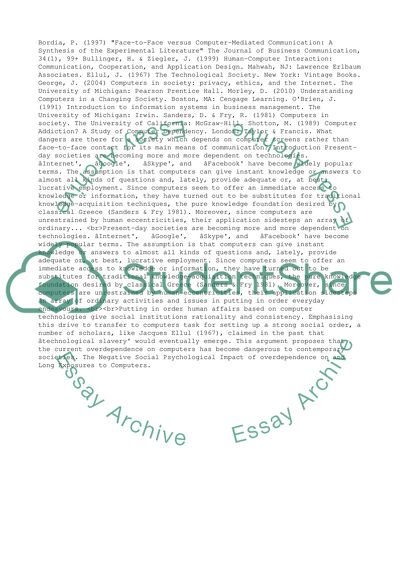Cite this document
(“The Negative Social Psychological Impact of Overdependence on and Long Essay”, n.d.)
Retrieved de https://studentshare.org/business/1391038-no-topic
Retrieved de https://studentshare.org/business/1391038-no-topic
(The Negative Social Psychological Impact of Overdependence on and Long Essay)
https://studentshare.org/business/1391038-no-topic.
https://studentshare.org/business/1391038-no-topic.
“The Negative Social Psychological Impact of Overdependence on and Long Essay”, n.d. https://studentshare.org/business/1391038-no-topic.


